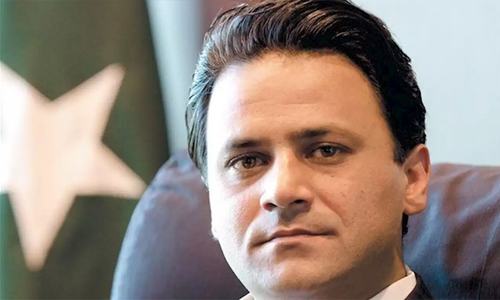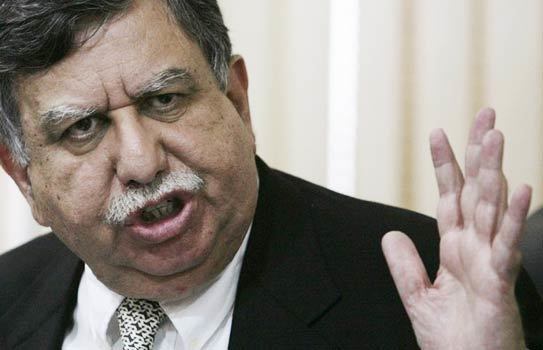Reshuffling the cabinet nowadays is considered a quasi-scientific endeavour. Part merit, part loyalty, part quota, part intuition and part stakeholder acceptability — all these ingredients are mixed in a bowl, sprinkled with hope, garnished with expectancy and served with a side of expected delivery; voila!
And yet, a painstaking agony of pulls and pushes goes into the making of a reshuffle. Which is why there is invariably a gap between the time such rumours first surface and the final announcement. This is what is swirling around in the Islamabad air as the dreaded month of March — ides and all — dissolves into a chirpy April spring.
For now, the chirping in the capital is all about who’s getting a flag on his or her car and who shall be vacating the badly constructed houses in the ministers’ enclave. There is more to this than idle gossip. The reshuffle of the federal cabinet has been on the cards since before the Senate elections. It is now, as per Red Zone insiders, in the final stages. It is in these stages that careers are made, and wrecked, because it is these dying hours before the announcement when the lobbying and campaigning is at its most intense. So intense, in fact, that names finalised are dropped, and dropped ones picked back up. As the last mile dissolves into the last hundred-yard dash, jaws are clenched and knuckles turned white as portfolios are bartered like precious commodities and a vicious give-and-take ensues over full federal versus minister of state statuses. The dressing on this salad of vanities is the choice of unelected advisers and special assistants who can be plucked from anonymity, or hurled into it.
The season is upon us. As are the aspirants. However even aspirations adhere to a certain hierarchy in the federal capital — such is the culture in the citadel of power. To understand this phenomenon of aspirational hierarchy, one needs to delve into the folds of the power structure as defined by its high offices. It is these offices that are at the centre of the intense lobbying under way in the city these last few weeks.
Experienced Red Zone insiders who have rotated through these powerful doors are almost united in their conclusion that the ministries that really matter in the federal government are: Finance, Interior, Foreign Affairs, Petroleum/Power, and Law & Justice. Call them Category ‘A’. The Category ‘B’ ministries include: Information, Communication, Planning & Development, and Commerce. Then there is Category C, which is pretty much all the others.
For the most senior members of the ruling party, the issue is not a place in the cabinet but the portfolio. Those lower in the hierarchy aspire just to have a flag on the car regardless of which ministry they get. Today both categories of aspirants are lobbying for their targeted positions. It makes for an interesting spectacle.
The category ‘A’ ministries have their own dynamics. For instance, Finance — arguably the most important ministry in the federal government — has just seen Hafeez Shaikh eased out and Hammad Azhar ushered in. However, Wednesday’s news about former finance minister and banker Shaukat Tareen being considered as finance adviser has soured the new minister’s day in the sun. While Hammad may indeed remain the full federal minister, the big question is whether he will be allowed to call the shots.
Editorial: Hafeez Sheikh deserved a better send-off than the one he was given
At Interior Sheikh Rashid was a surprise choice because Fawad Chaudhry was considered the frontrunner. Government sources say there is a general acknowledgement at the highest level that Fawad is underutilised at the Science & Technology ministry. In this latest reshuffle he is expected to get a portfolio higher up in the hierarchical ladder. But can he leapfrog into Category ‘A’? Interior appears an undisputed ministry for now. But is it, really?
At the Foreign Office, Shah Mahmood Qureshi has had an easy sailing and has not really had to look over his shoulder these two years. The issue is that his ministry has to share its institutional role with the establishment, which in a way dilutes the power it should really be exuding. Since Qureshi is already donning a Category ‘A’ portfolio, he should theoretically be content. Perhaps he is. The problem is that there is a long line of aspirants who eye his portfolio lustily. But they drool in vain. Unless…
This is where the plot thickens.
Shah Mahmood Qureshi’s name was discussed in a meeting about the governance mess in Punjab earlier this month. When Prime Minister Imran Khan was told by his senior ministers that the pressure was becoming unbearable for a change at the top level in Punjab, he had asked for possible replacements. Qureshi’s name was discussed, again, for the office of the chief minister of Punjab. It is not known what the discussion finally concluded, but what is known is that if that option were to surface, Qureshi would happily vacate the Foreign Office. For now, however, that seems a remote possibility.
The petroleum ministry is key to most governance problems today. A new minister is expected to be appointed in this reshuffle. No names are confirmed but Shibli Faraz is being mentioned frequently. For this Category ‘A’ ministry, what attributes will the prime minister be looking for in a minister? Loyalty? Expertise? Stature? He has already stated in meetings that he prefers experts to run technical ministries. With the unceremonious departure of Nadeem Babar, Tabish Gauhar is the ‘technical lead’ for petroleum and power. Omar Ayub holds the ministerial reigns for now but Red Zone chatter says he may be heading to some other destination.
For now, let it be said that there are serious aspirants available for the following Category ‘A’ federal ministries in the upcoming reshuffle: Interior, Petroleum, Power as well as Law & Justice.
The Senate elections have produced their own aspirational dynamics. Featured among the names in circulation for the reshuffle are Saifullah Nyazee, Faisal Javed, Ali Zafar, Mohsin Aziz, Anwaar-ul-Haq Kakar, Faisal Vawda, Sarfraz Bugti, Faisal Subzwari and Walid Iqbal. Some of these names qualify for a cabinet position based on loyalty, others on merit and a few on stakeholder acceptability. Then there’s the office of the leader of the house in the Senate currently occupied by Dr Shahzad Wasim. This office too has some aspirants but that will depend on whether the prime minister wants to accommodate the incumbent in the cabinet.
From among the National Assembly ranks, PTI’s MNA from Faisalabad Farrukh Habib is the most frequently mentioned name for a minister of state position in the imminent reshuffle. He has performed well for his party as a spokesperson and is generally respected for his long stint as a member of the party. He could end up at the Information ministry. Kanwal Shauzab, the firebrand MNA is also a candidate but she may have to wait for the next reshuffle because of the tremendous pressure on limited cabinet seats.
Bottom line, however, is that only the prime minister knows who will end up in the final list. Red Zone insiders say he is taking his time because he wants this reshuffle to signal a new resolve, a new clarity and a new ambition for the remainder of the term. For the aspirants however, every minute weighs heavy. Tick tock tick tock.
Published in Dawn, April 1st, 2021













































